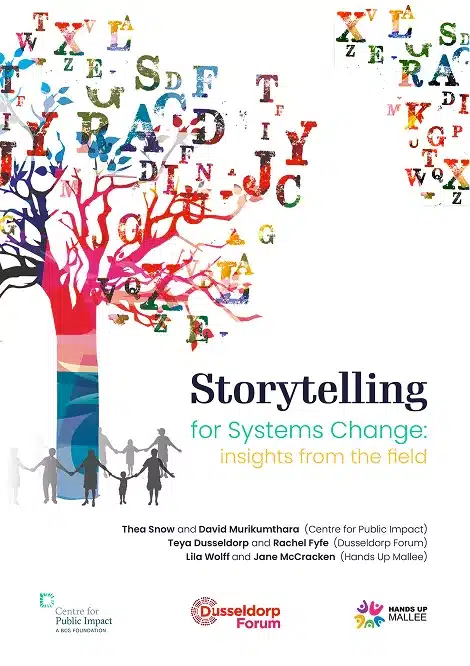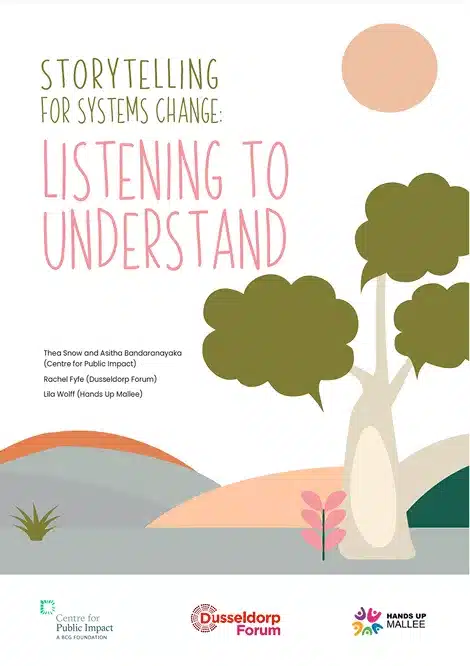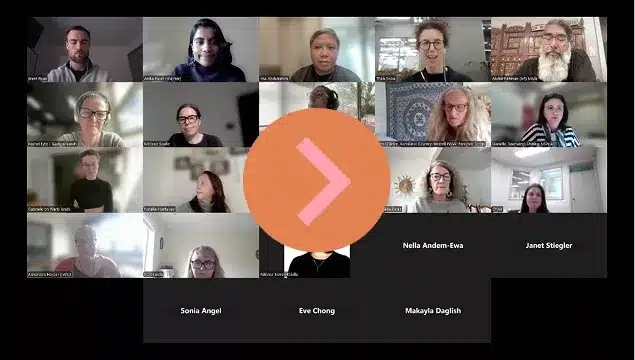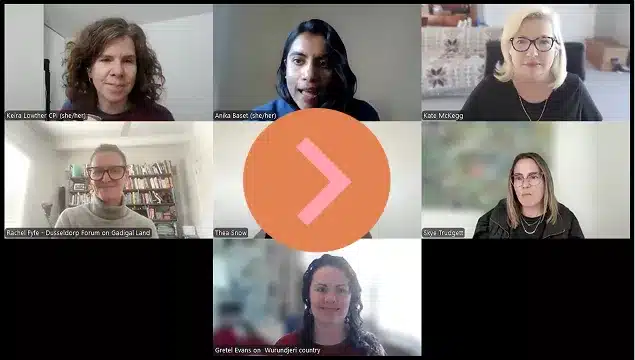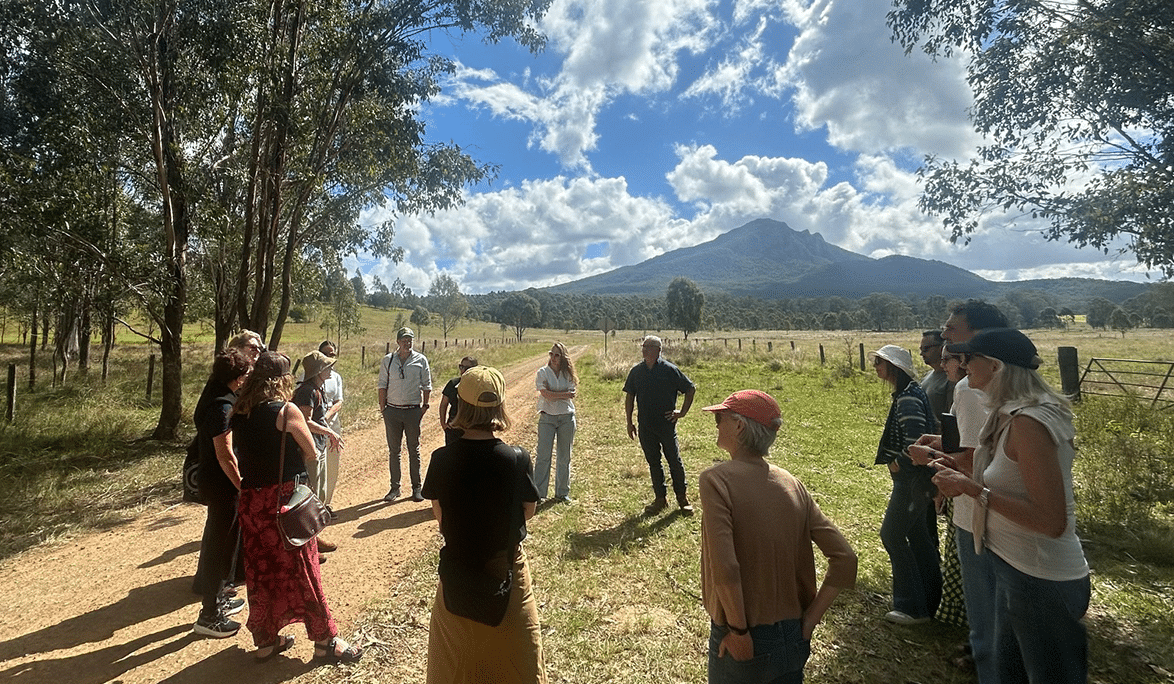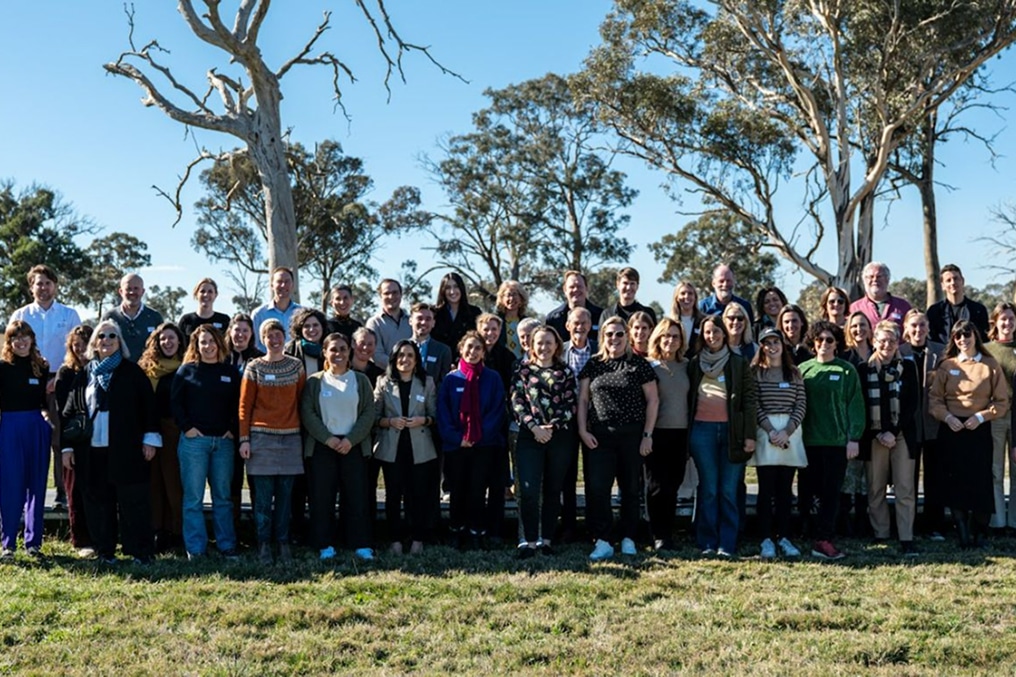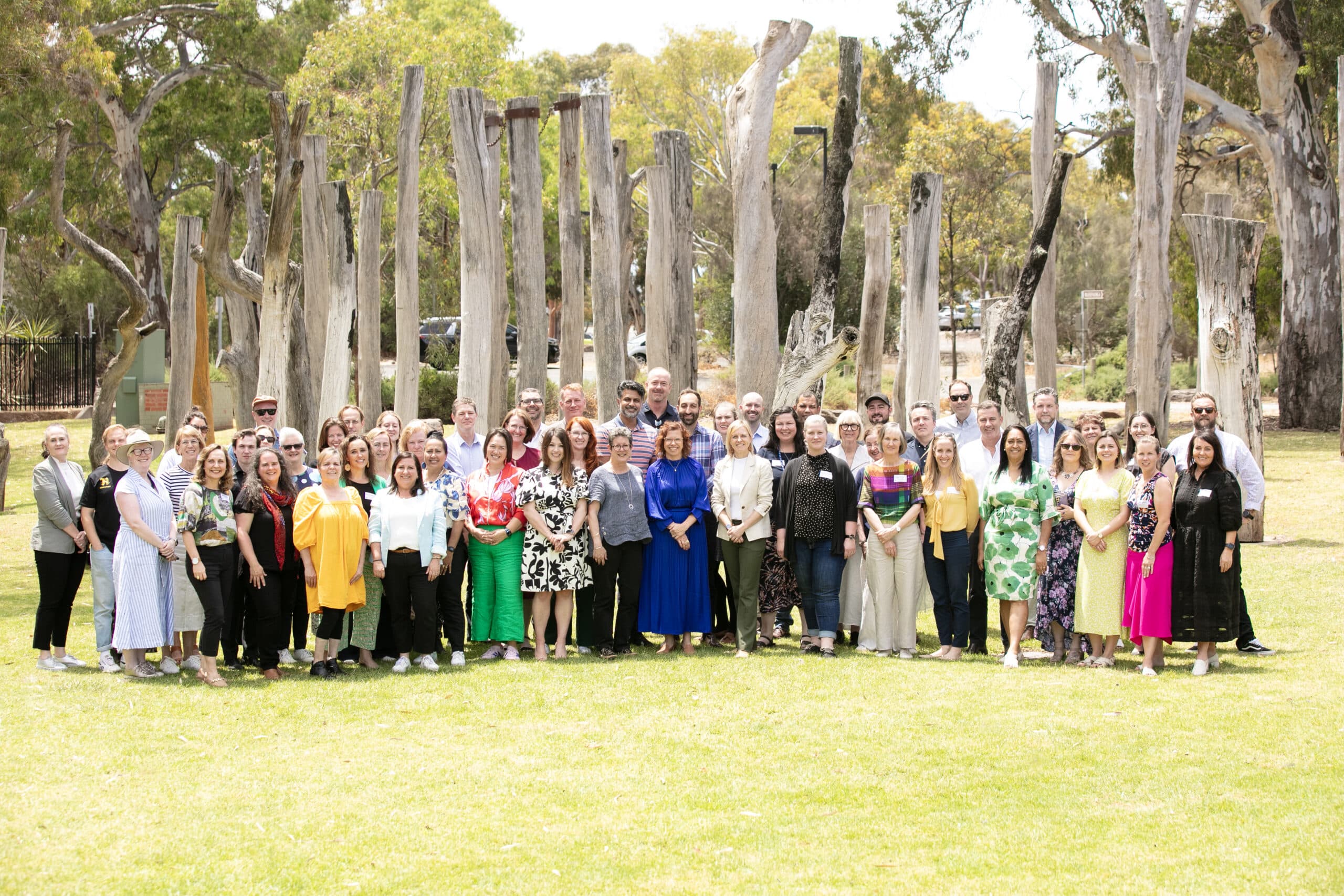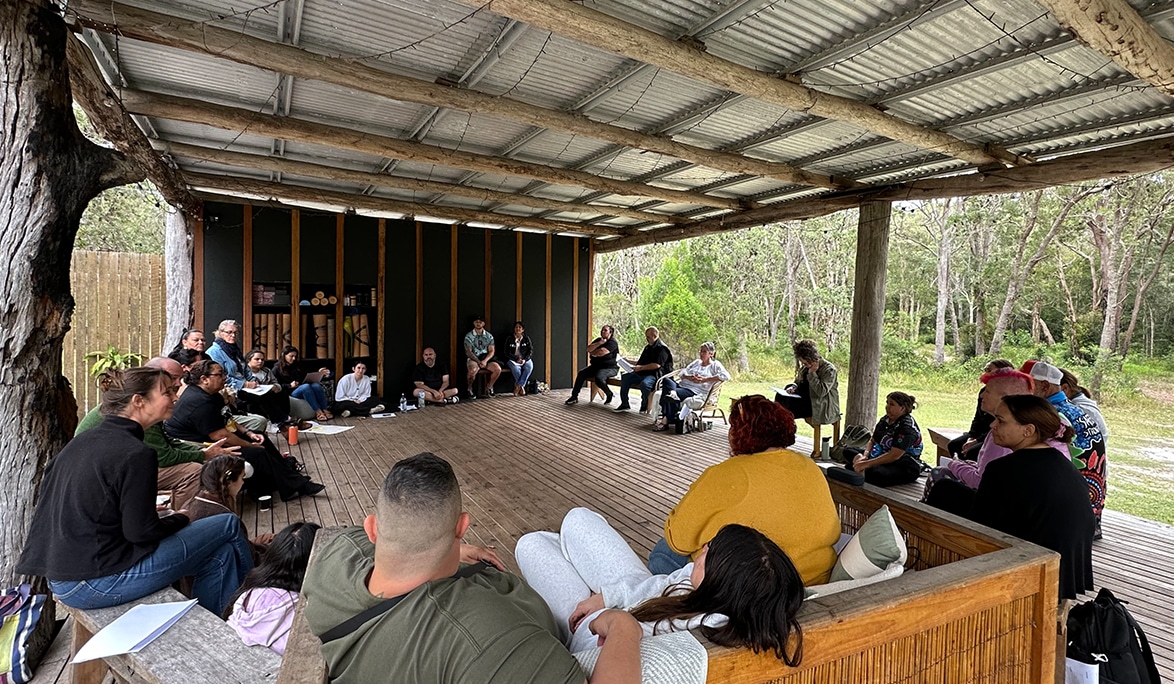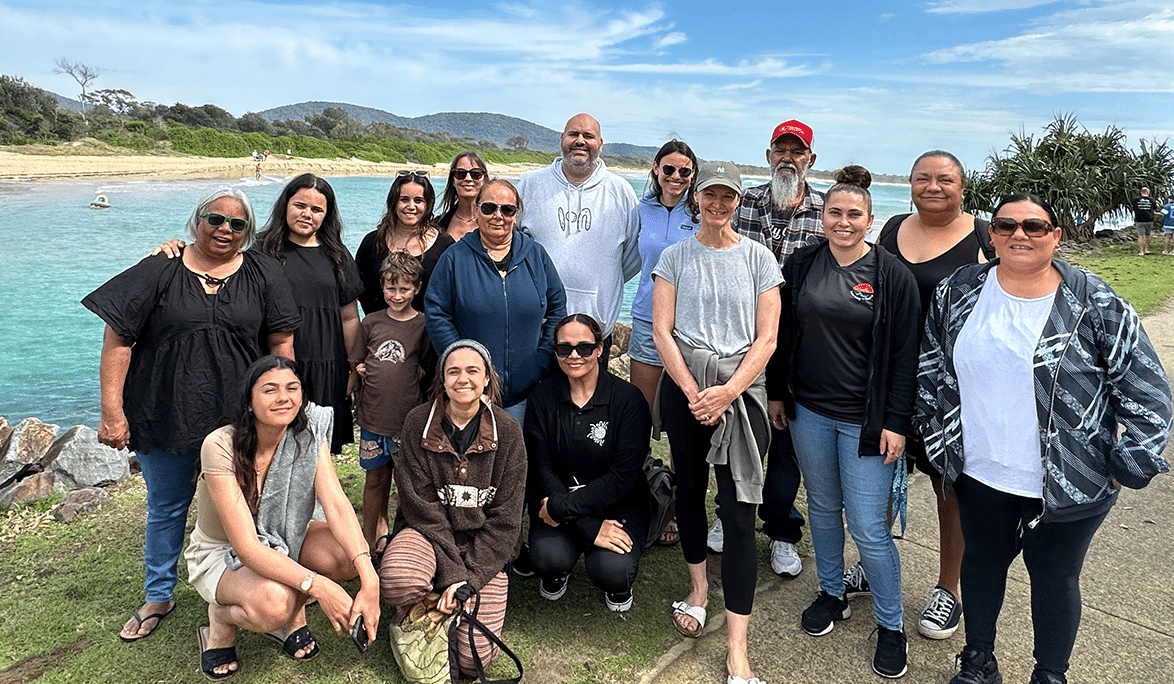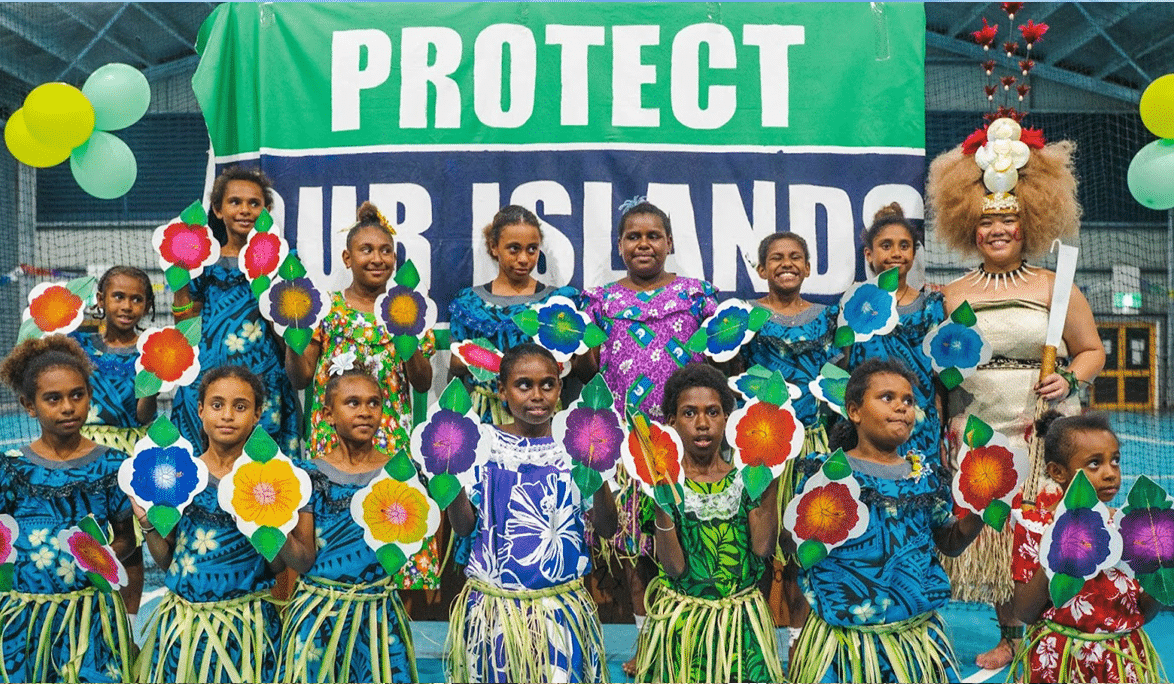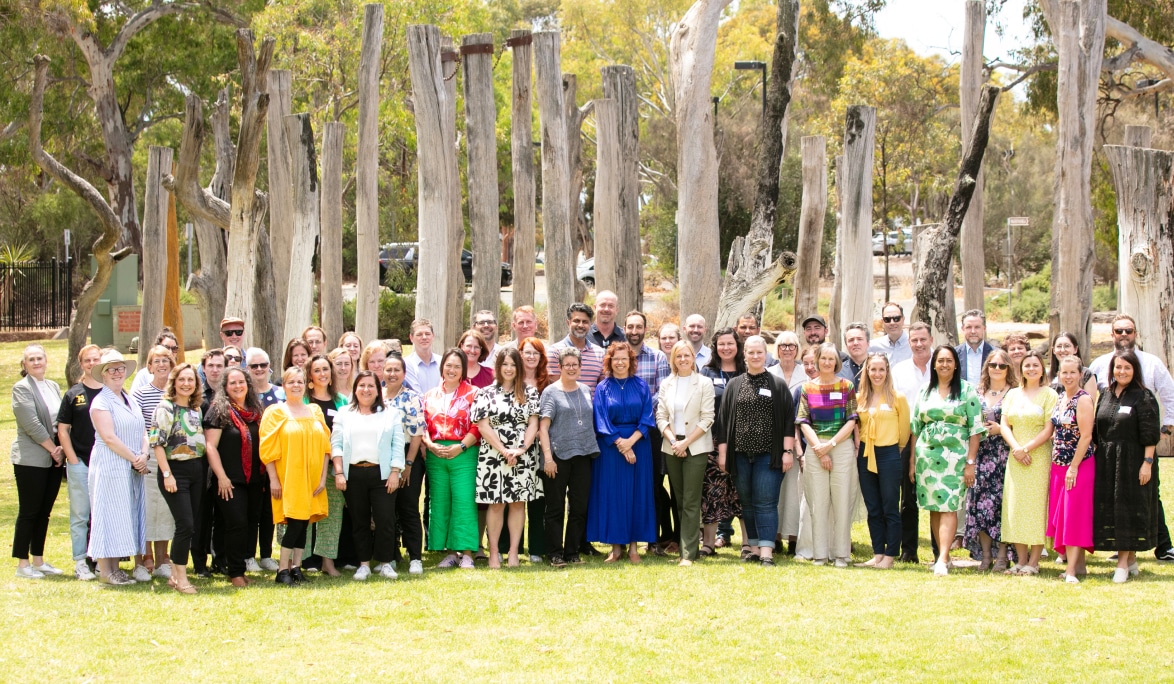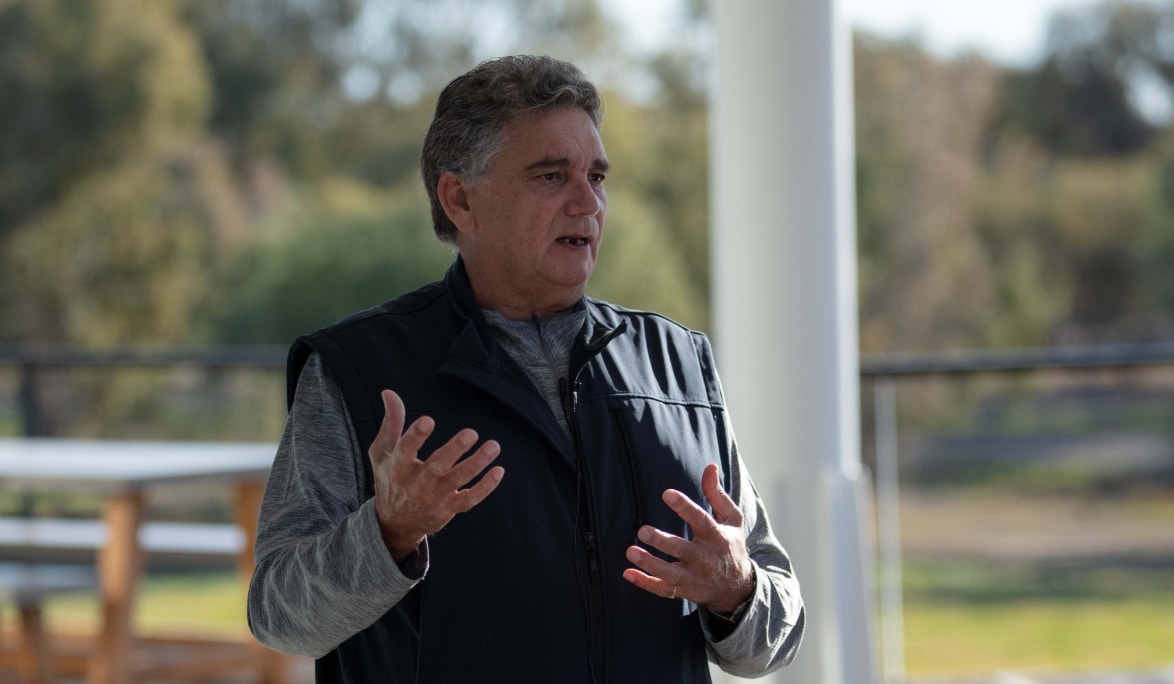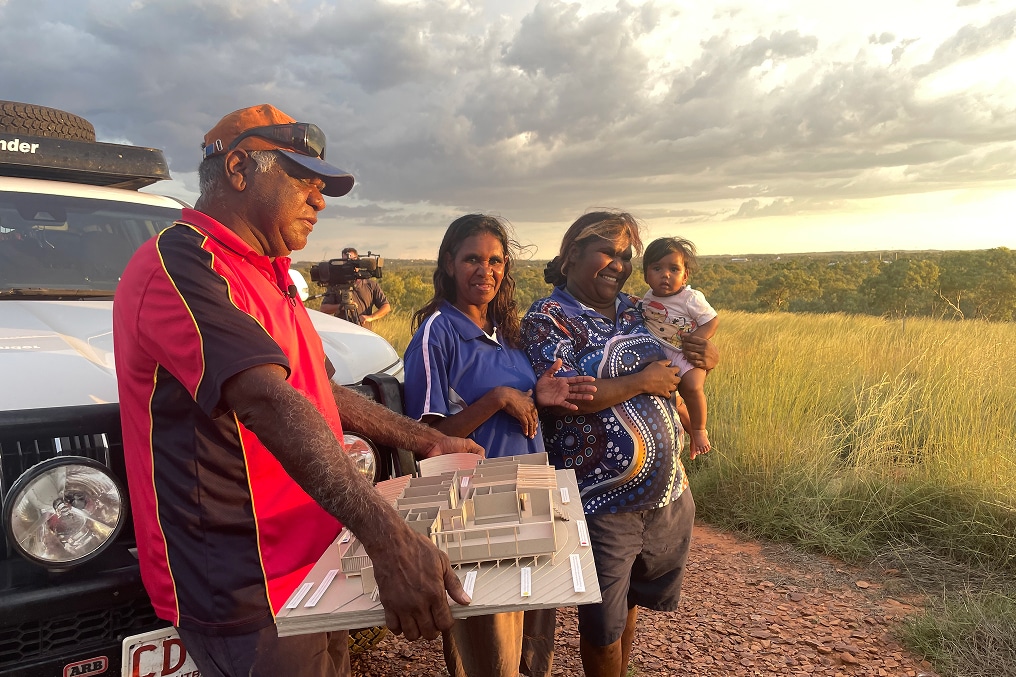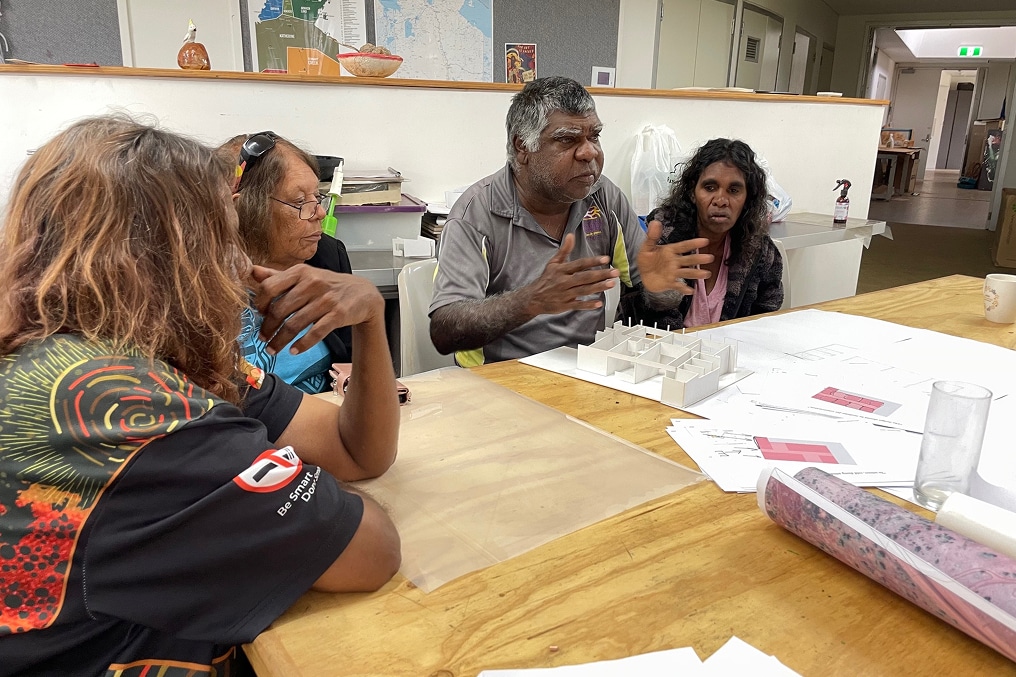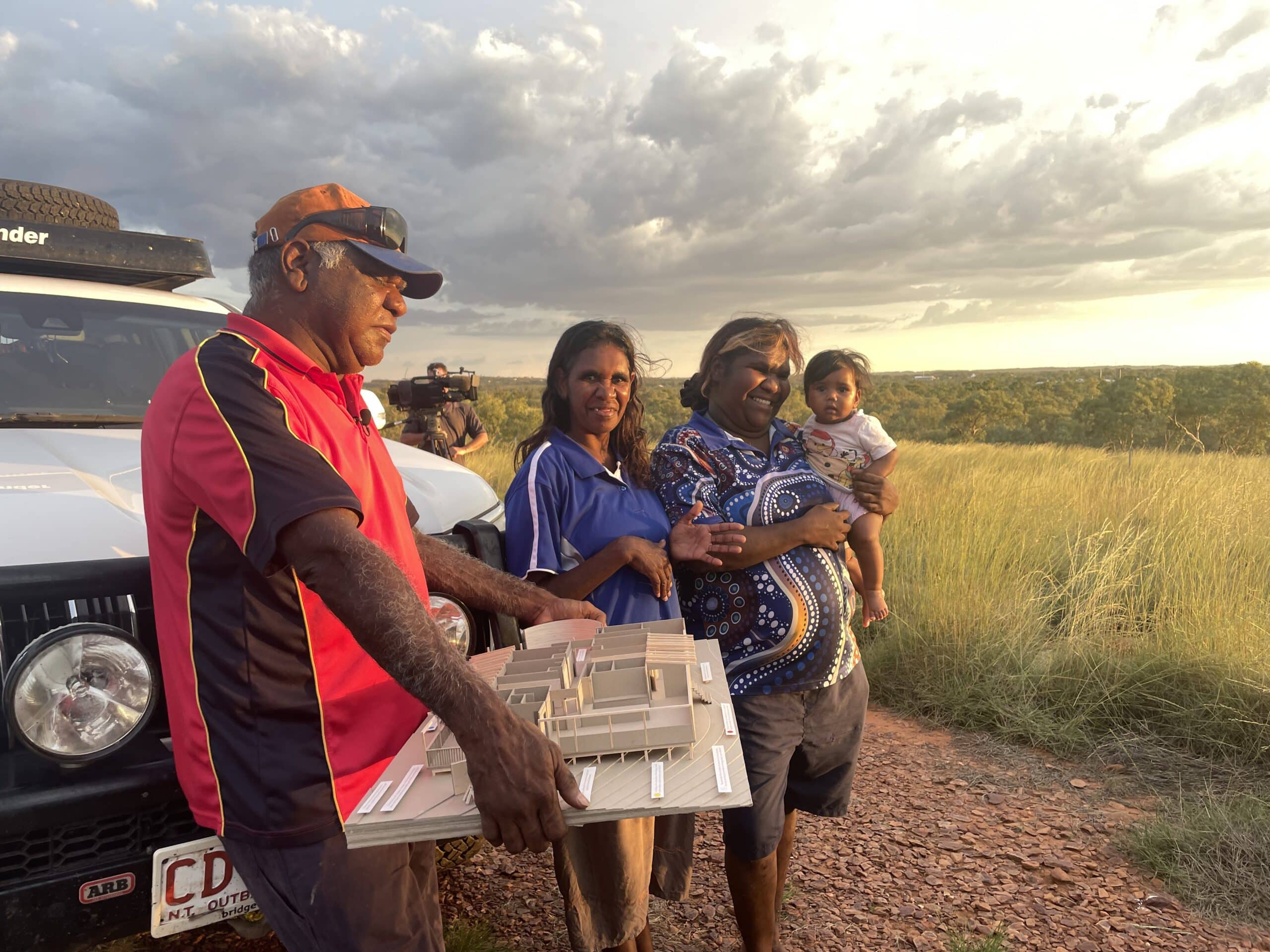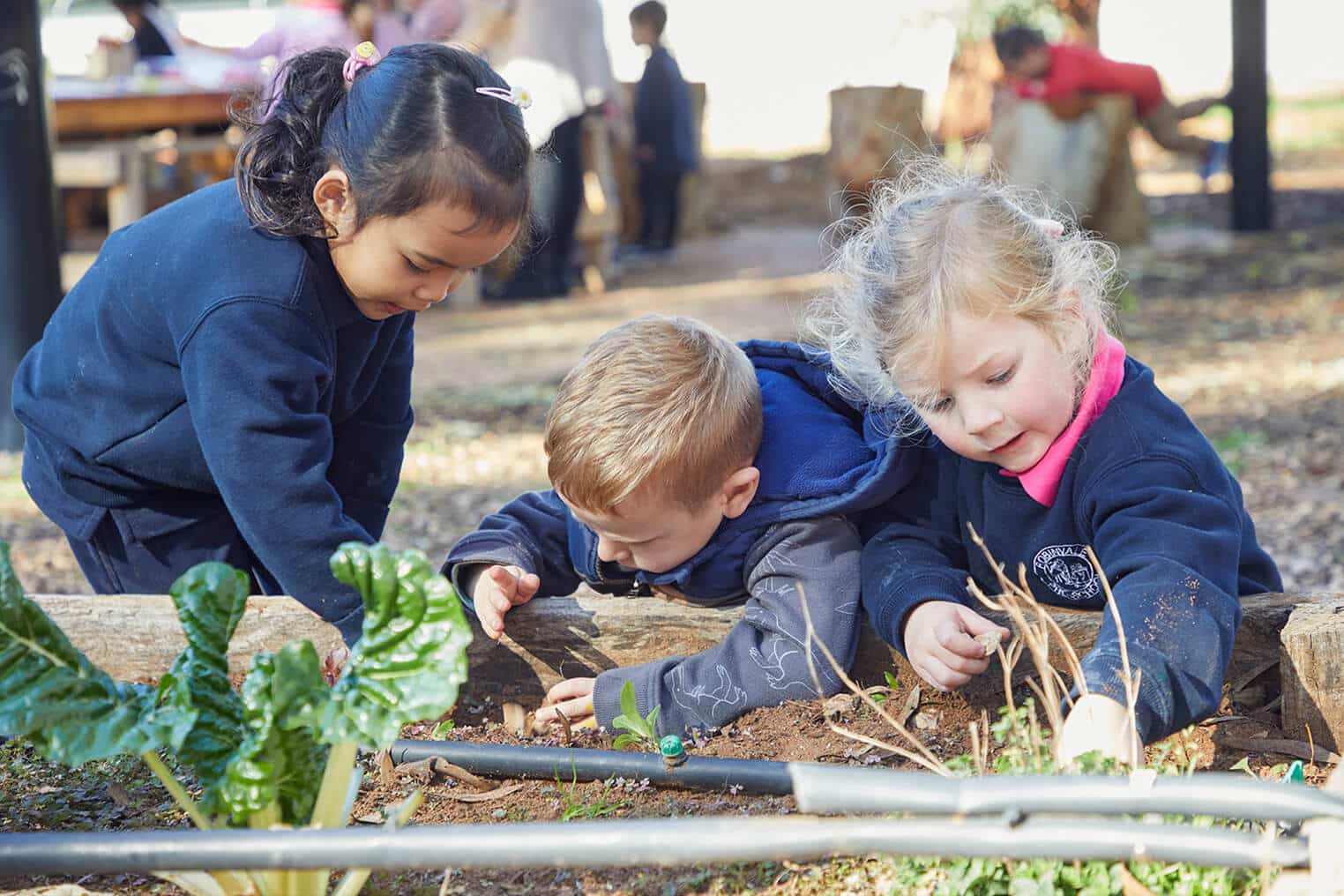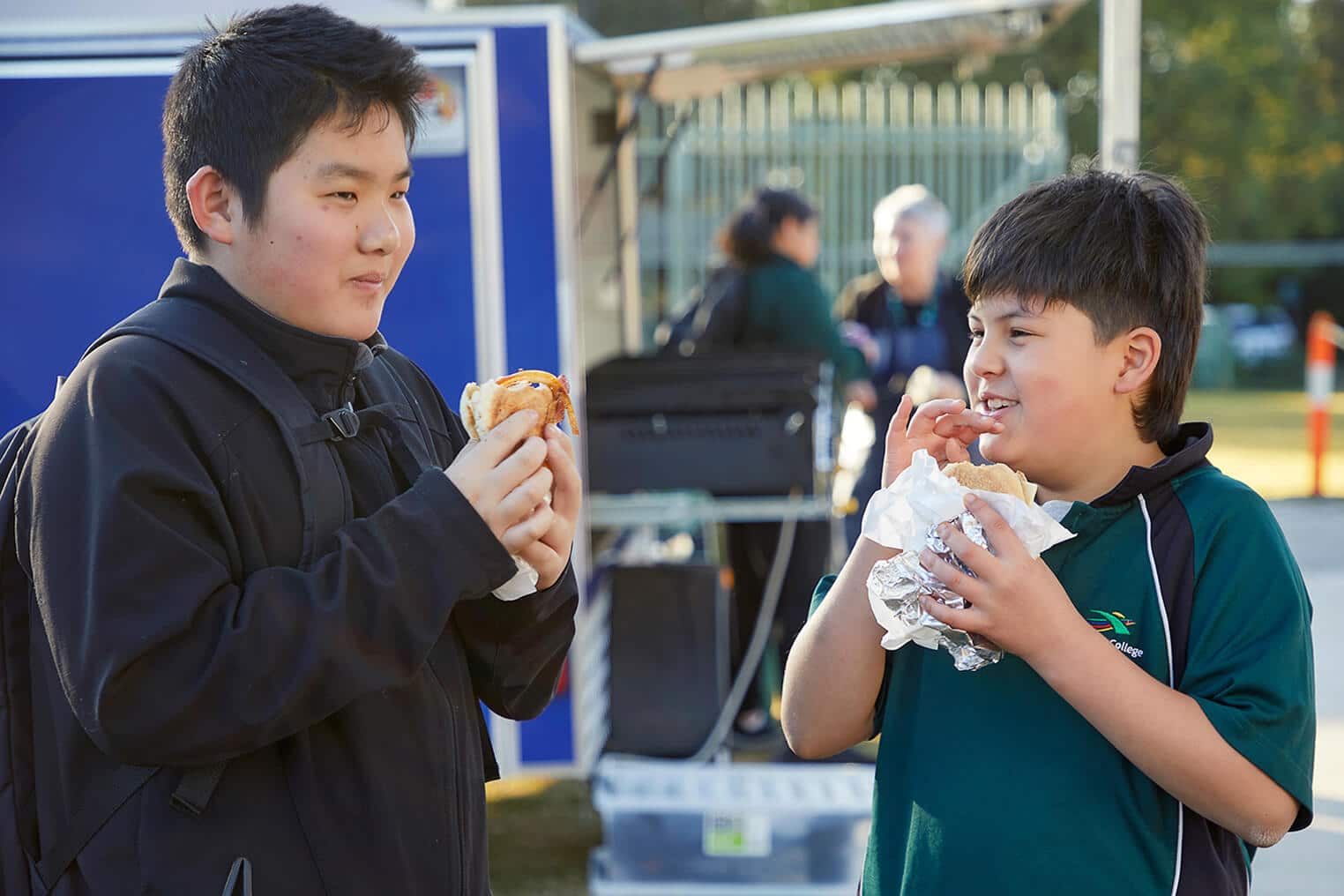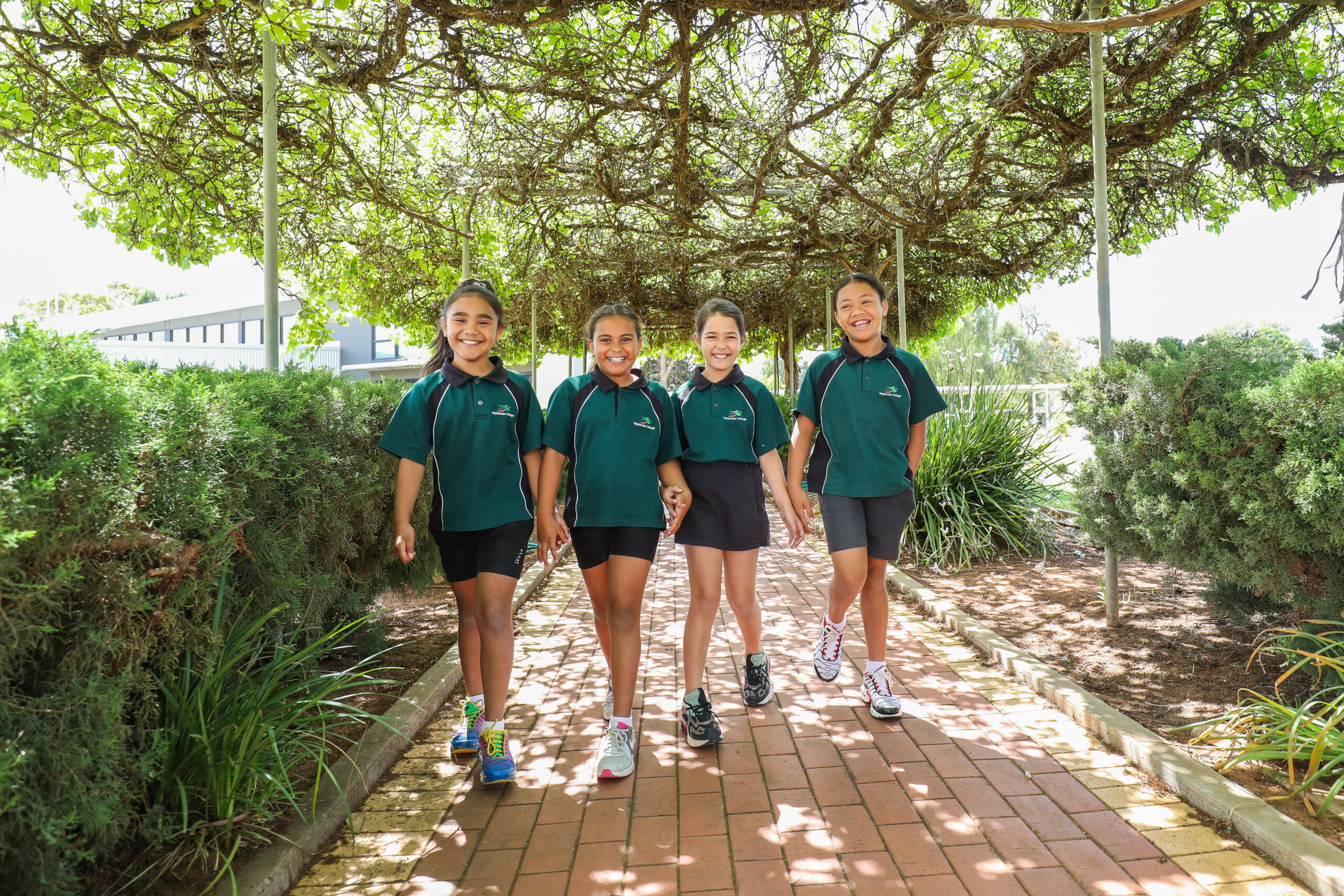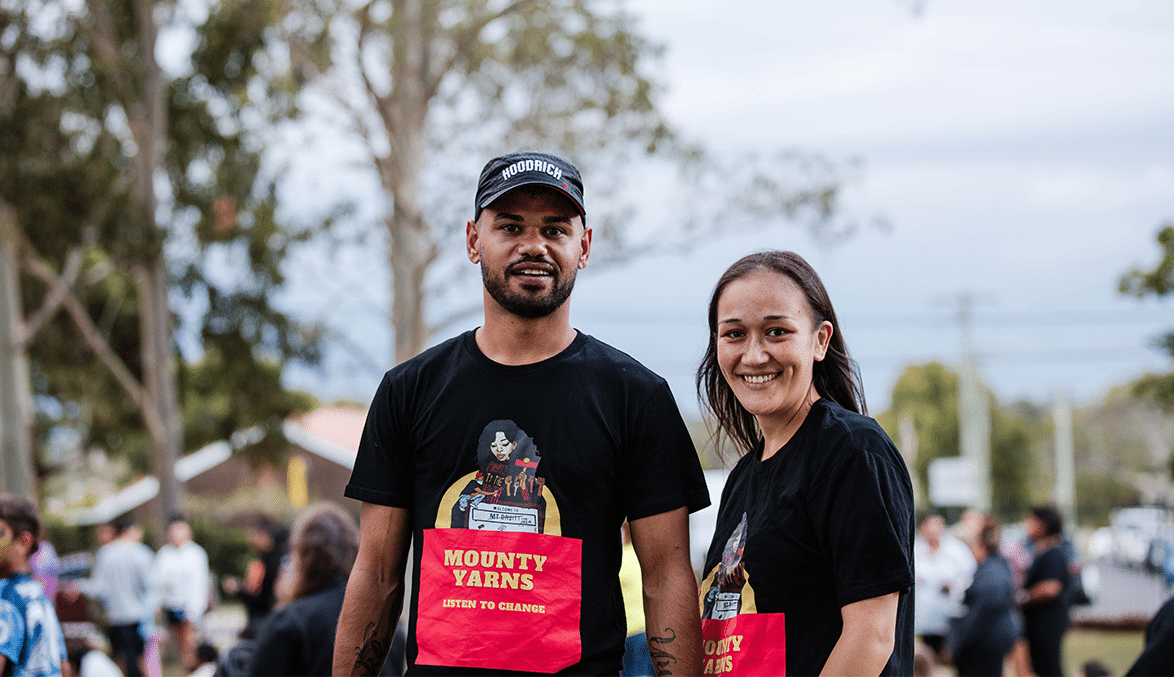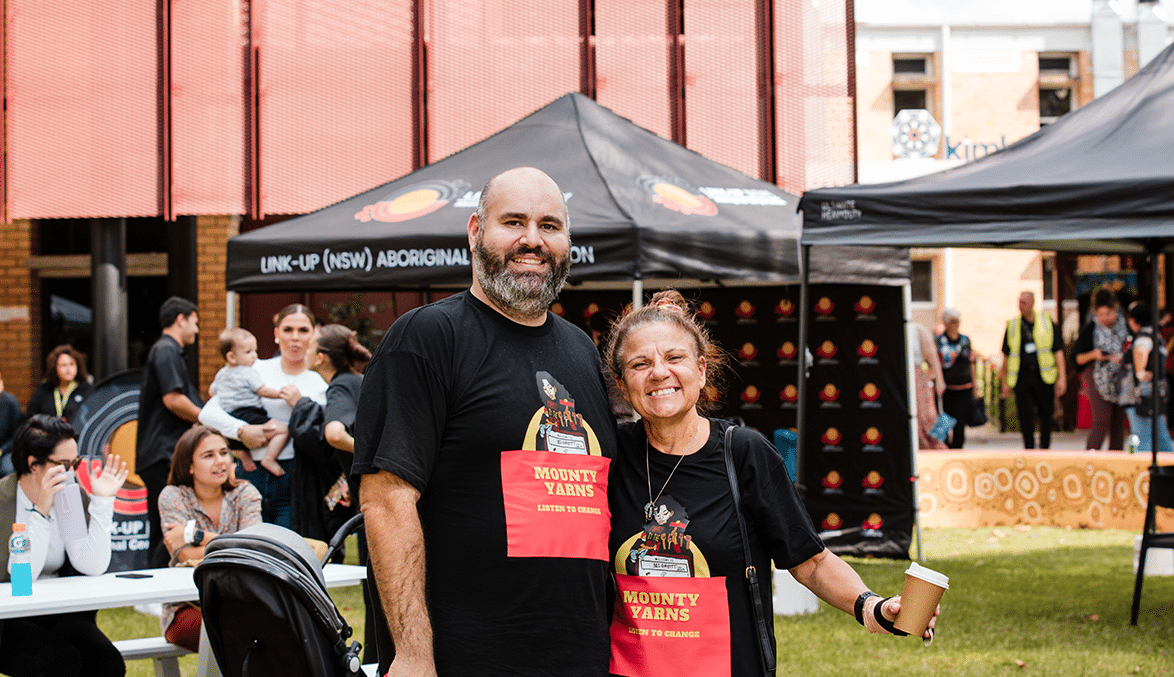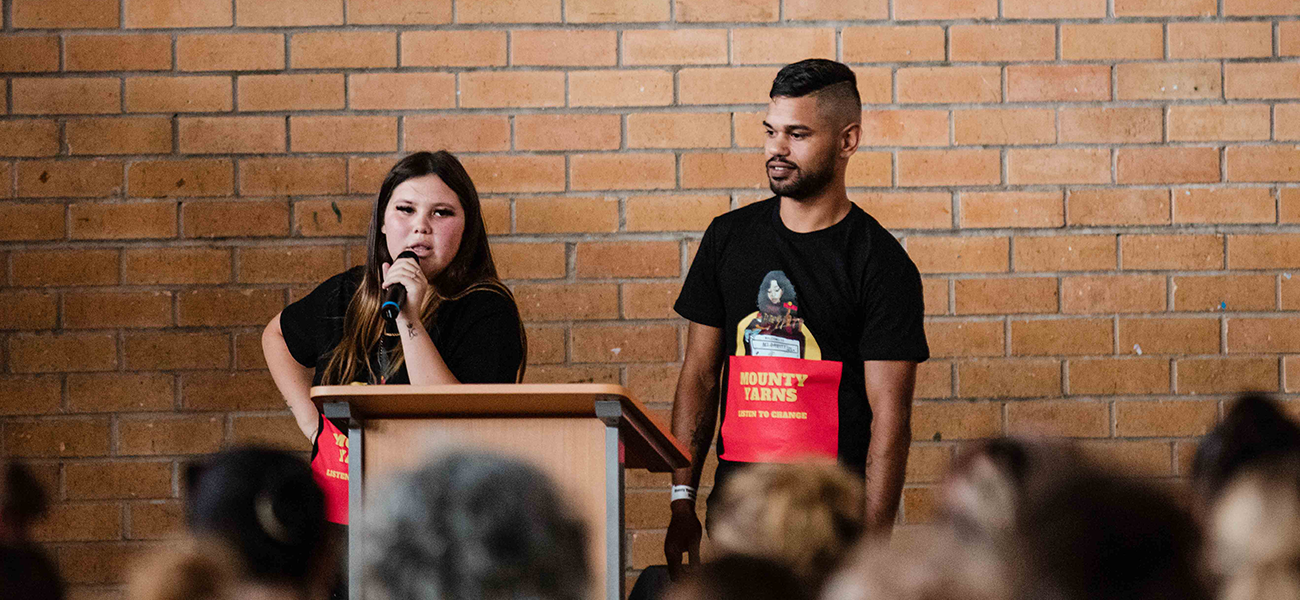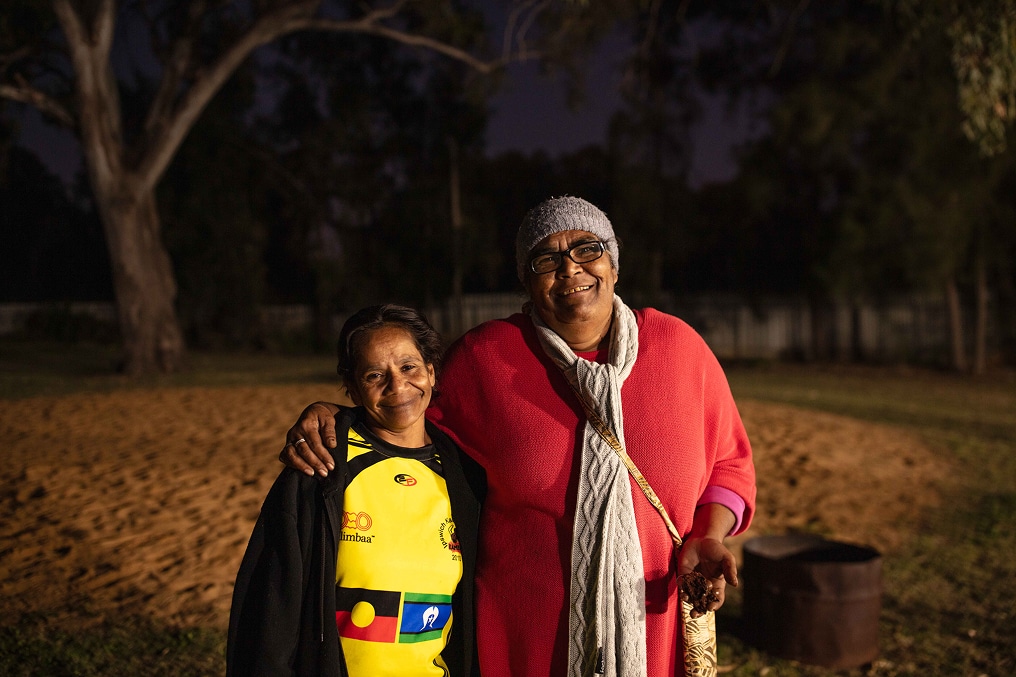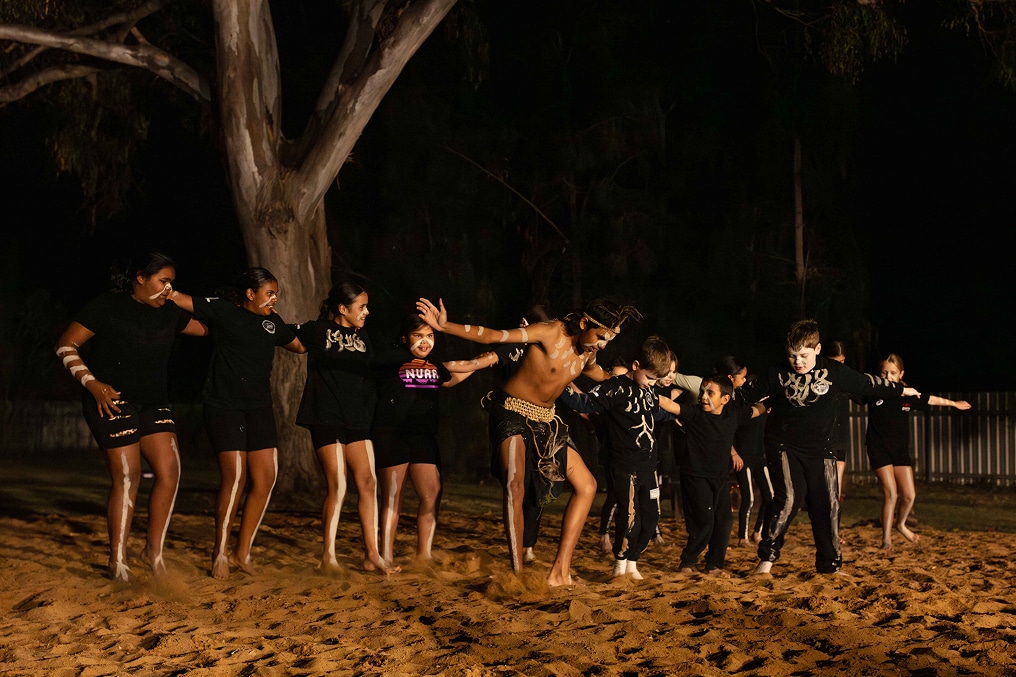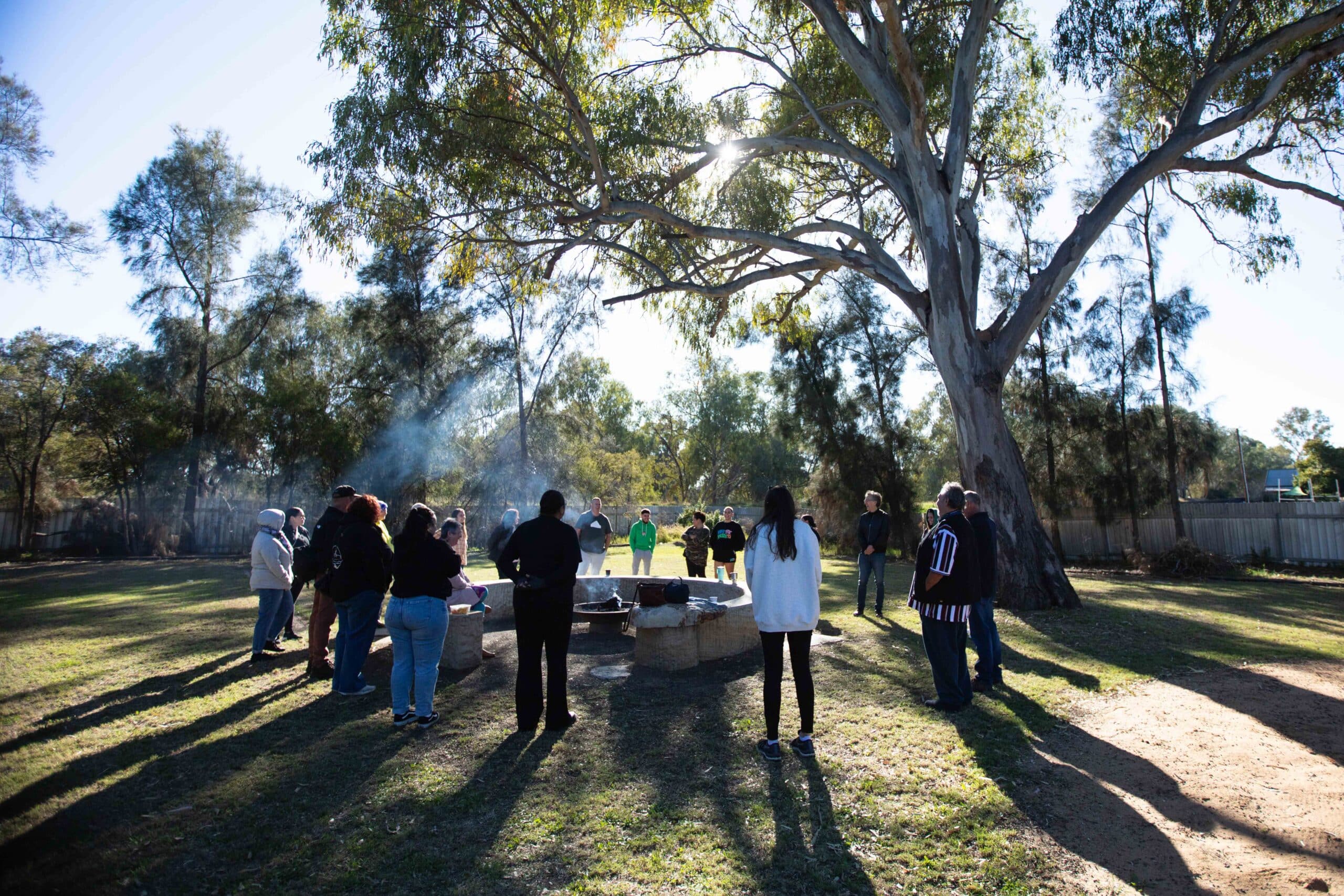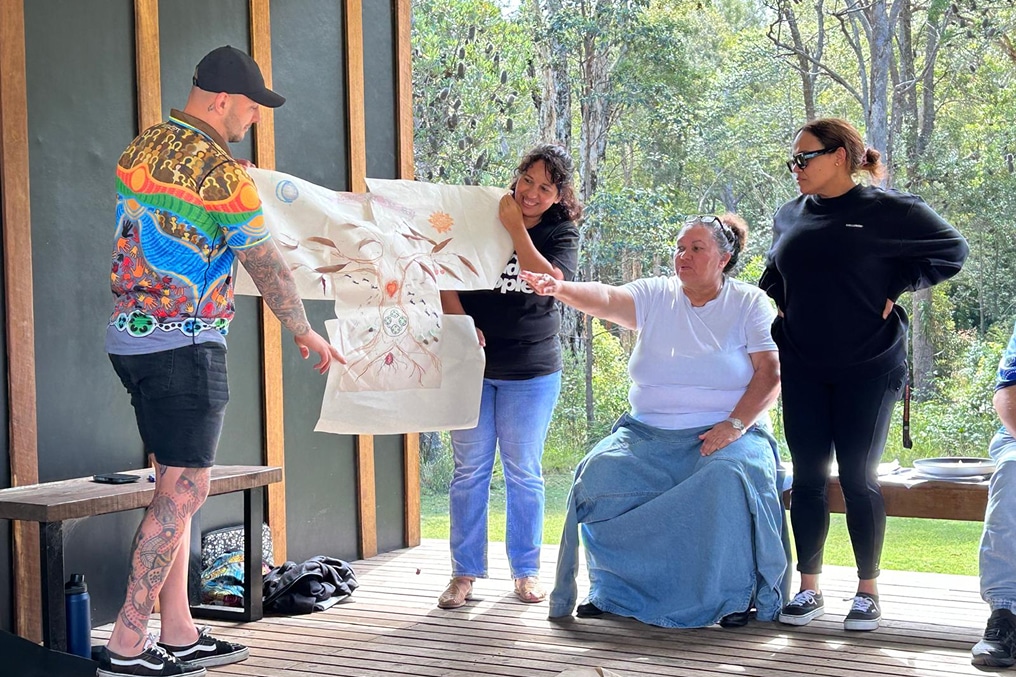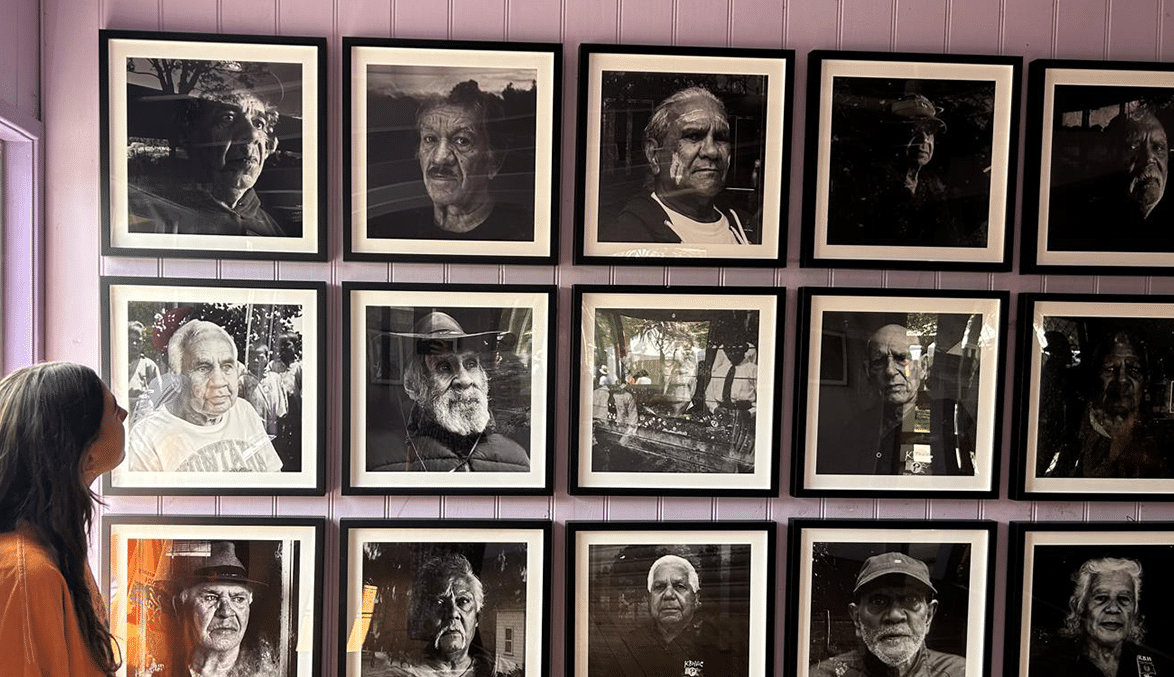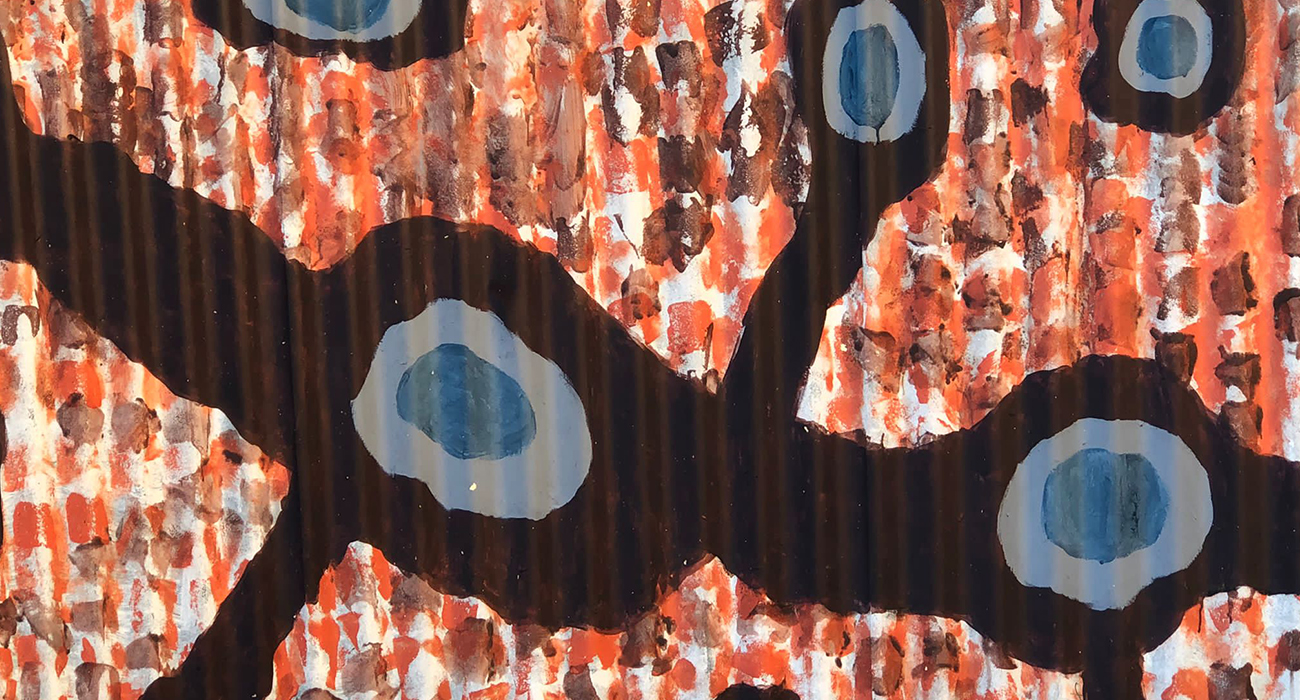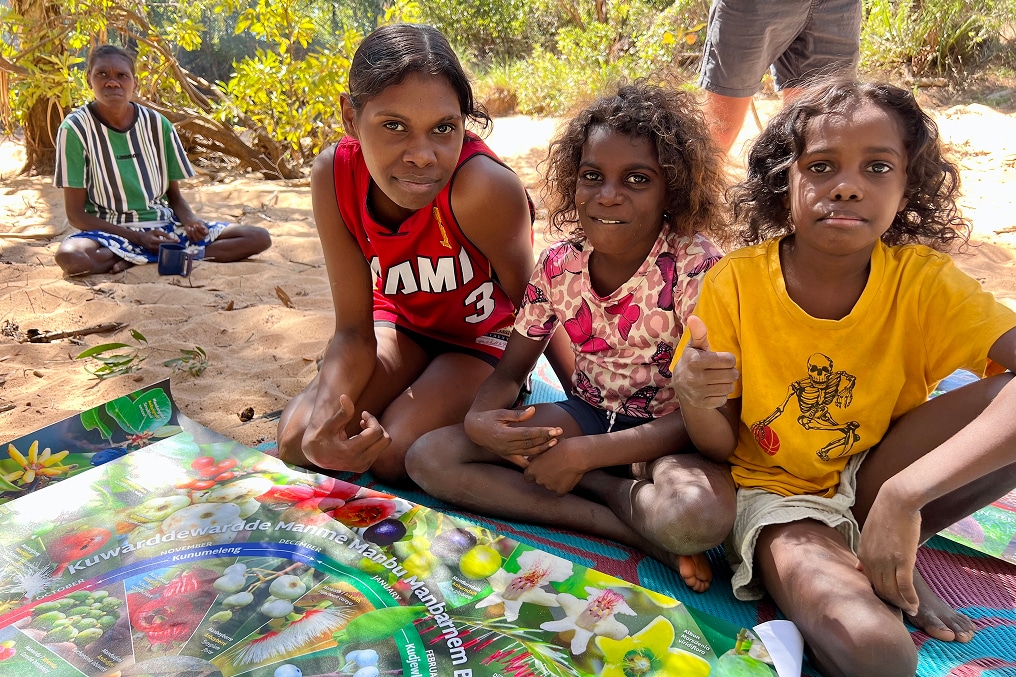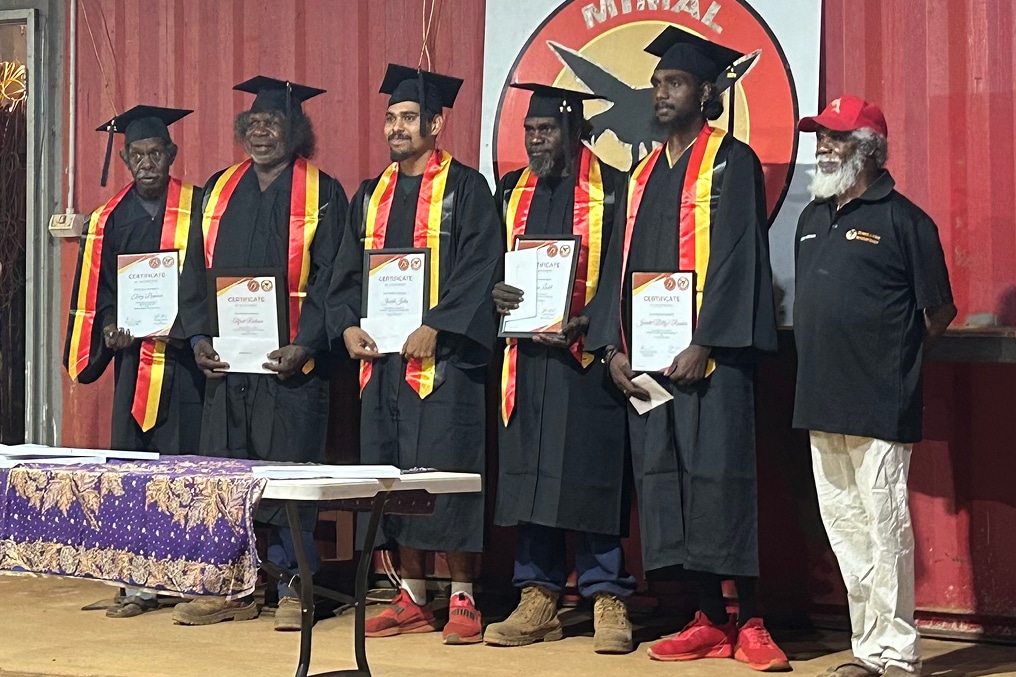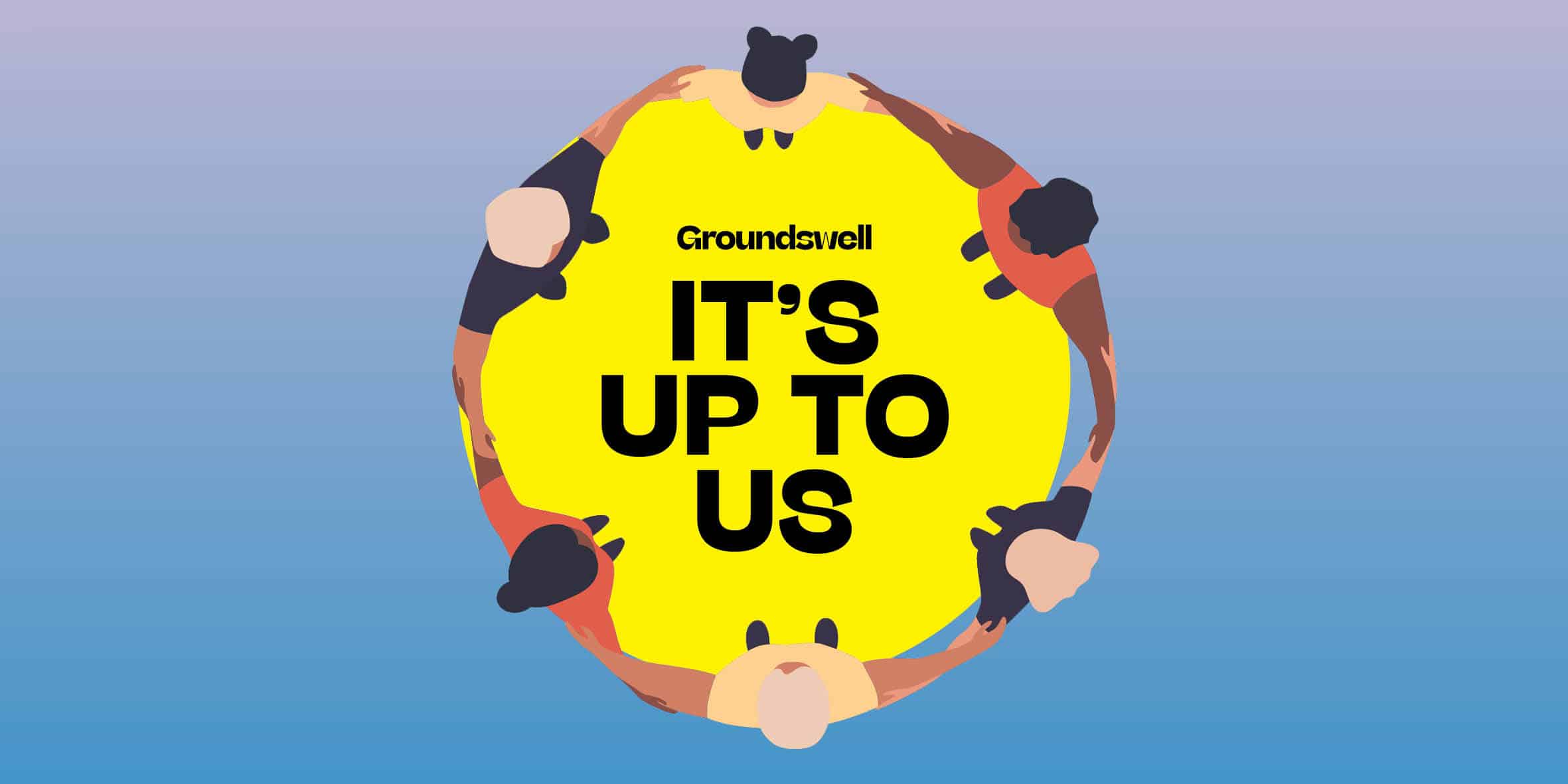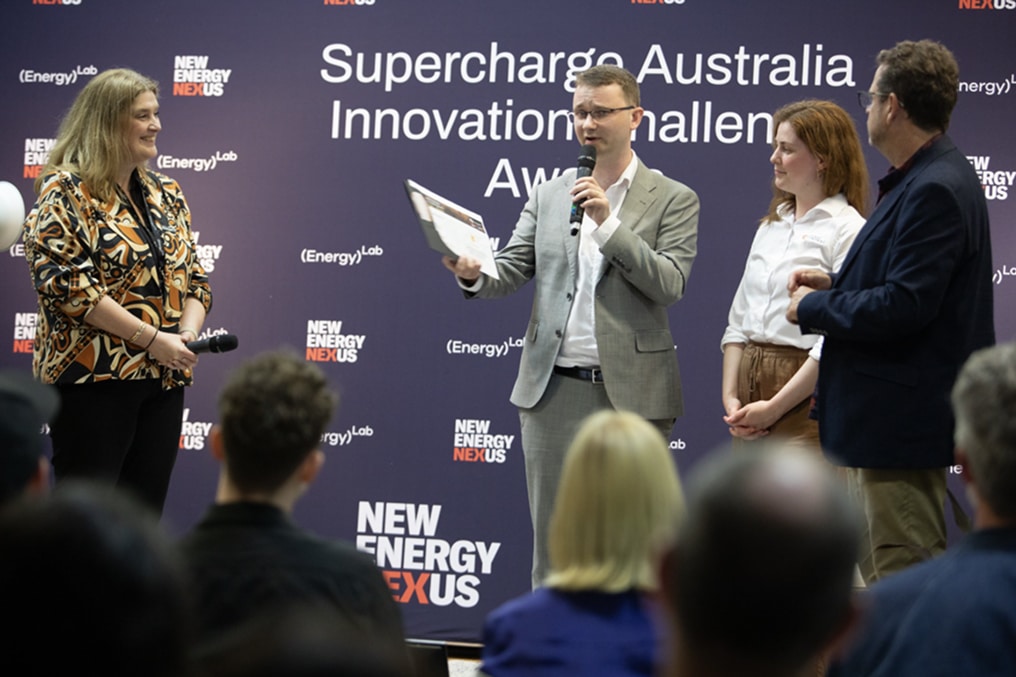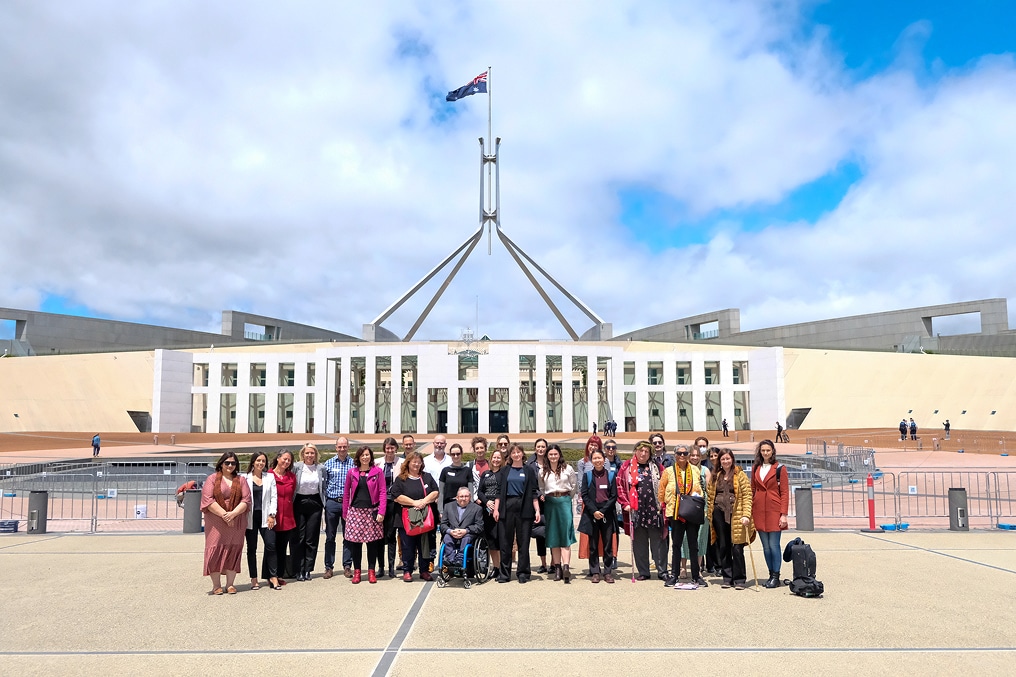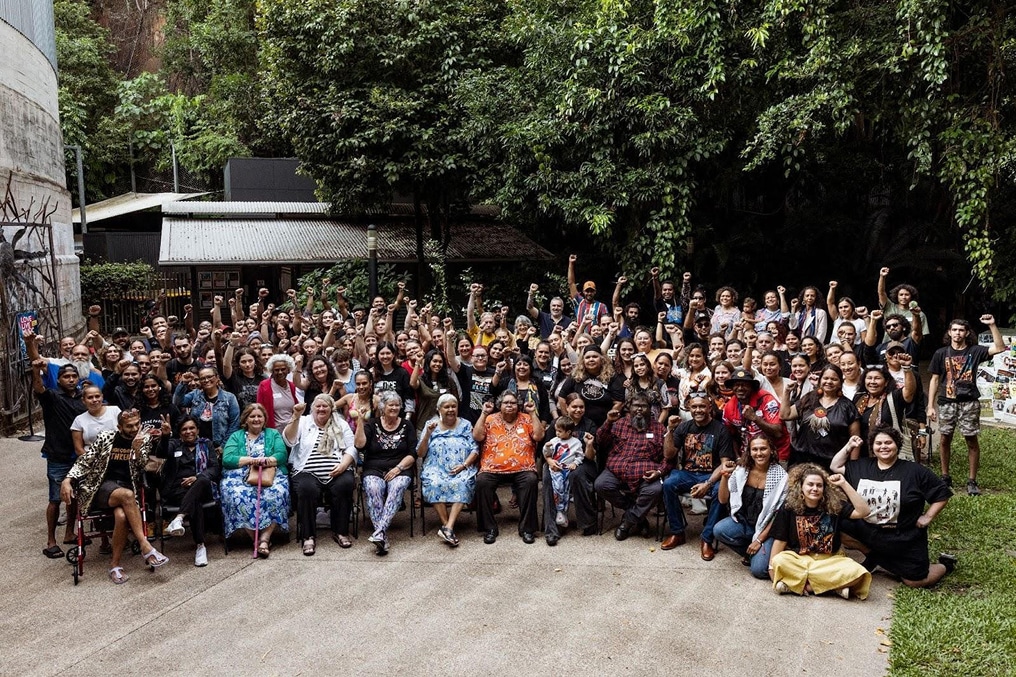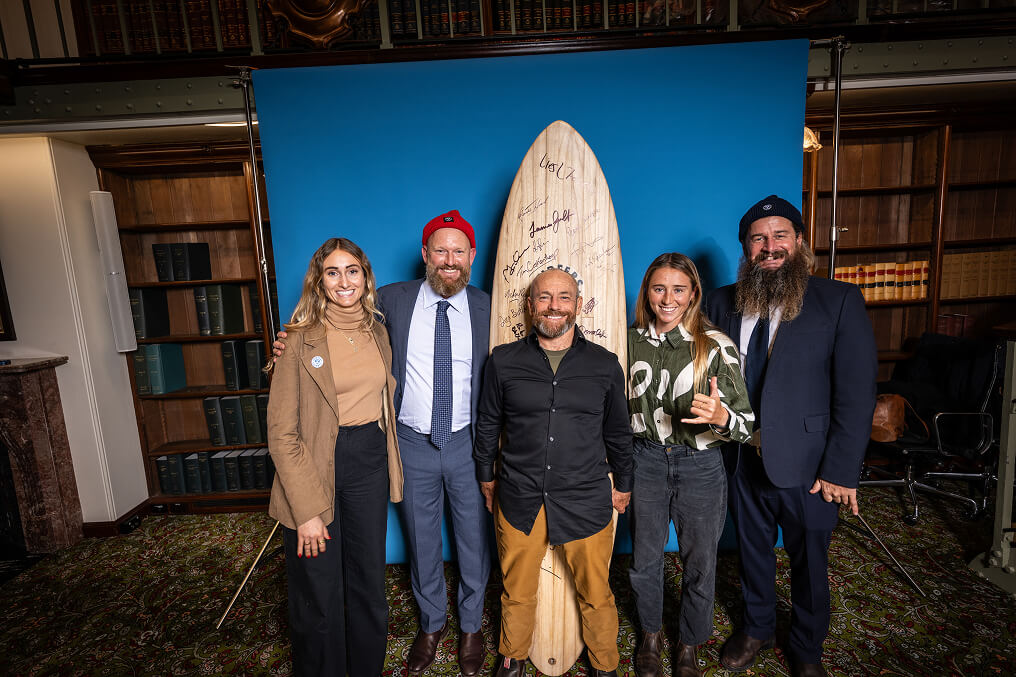Storytelling for Systems Change
A story-kit for changemakers
This website is for story-tellers, story-holders, story-listeners and for the story-curious. It is the culmination of years of exploration and research into the power of stories to change systems.
Throughout these pages you’ll find a collection of reports, resources and tools which we – Dusseldorp Forum, the Centre for Public Impact ANZ and our many partners and collaborators – have collected as part of our story journey, and which we hope supports yours.
We invite you to explore and take with you things that feel useful, or provocative, or which capture your imagination. We’re excited to see how others might use the resources captured in these pages, which we have spent the past few years developing, gathering and curating.
Whether you’ve come here to find a specific resource or tool, or found your way here accidentally, we hope that you spend time looking around, getting a bit lost, and we hope you leave with a deeper sense of the power of stories to help make sense of, and shape, the world around us.
Reports
Our story work is grounded in two key reports
Both reports emerged from the following questions:
- how stories are used by government and funders;
- what gets in the way of stories being heard; and
- what might be done to build the readiness of government and philanthropy to listen more deeply.
Community-building
This story work has never been ours alone – it’s been created by, with and for all of the people who have shared their ideas and insights, as well as for the thousands of people who have downloaded our reports and joined our events and conversations.
With this in mind, we’ve been asking people along the way what would feel most valuable to support them to develop their own story work and practice. Many highlighted building story skills and creating communities of practice as areas they would like to focus on.
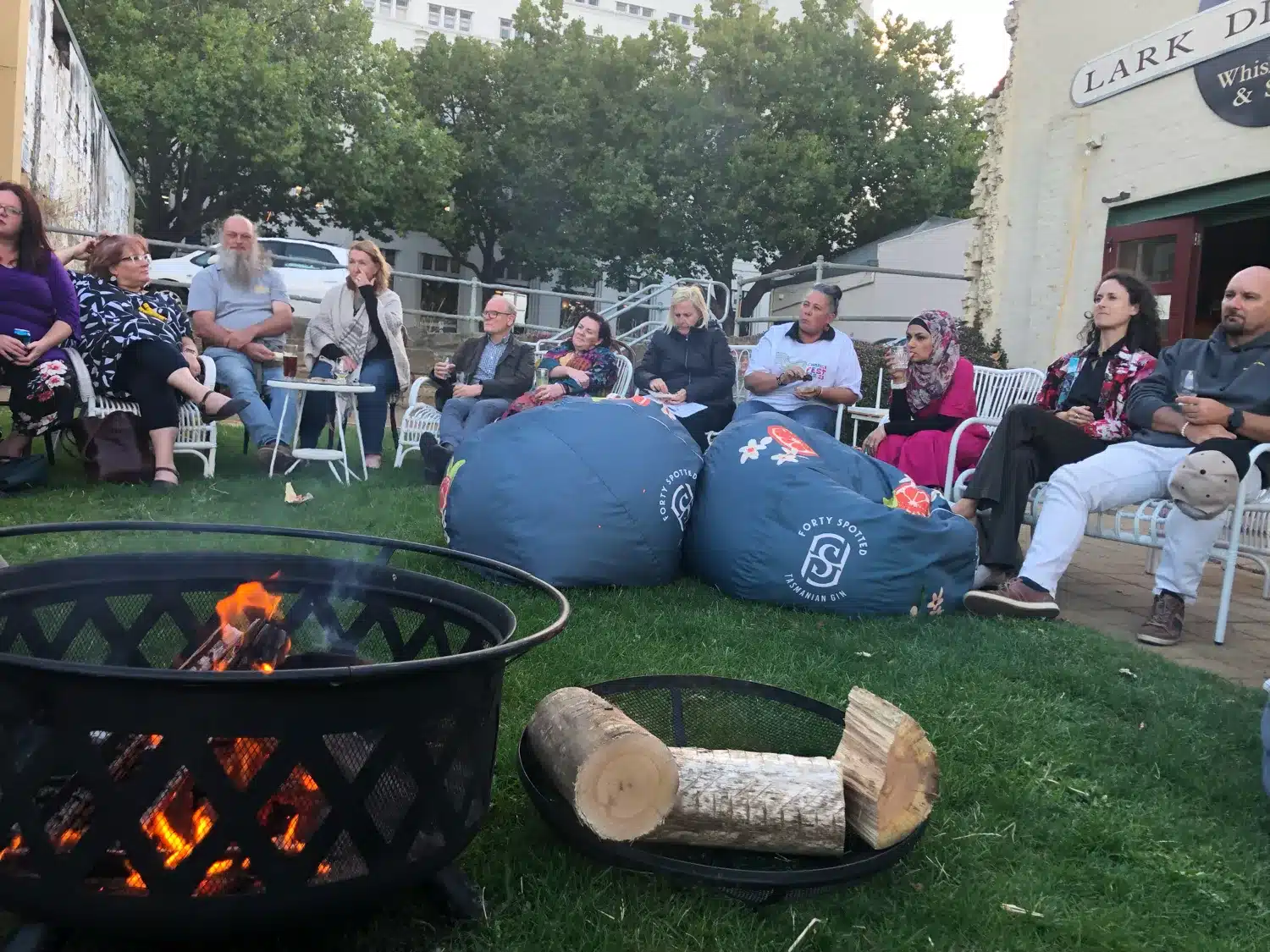
More recently, over the course of 2025, Dusseldorp Forum and CPI hosted a Stories and Systems Learning Circle, designed to bridge the theory and practice of story work, seed conversations across sectors and support collective learning.
As part of the offering, people were invited to select which level of engagement felt right for them.
Wattle Tier
for those who wanted to attend the four online sessions only
Banksia Tier
for those who were keen to attend the online sessions and engage in individual reflective practice afterwards
Kangaroo Paw Tier
for those who were keen for some additional small group learning in between the online sessions
Across four online sessions, participants shared tools, practices, and reflections on how storytelling can deepen understanding, build relationships, and unlock new possibilities for change.
You can explore those sessions here:
Session 1
How do stories change systems?
To open the series, we explored three key themes: how stories shape the systems we live in, the danger of relying on a single story and storytelling from multiple perspectives.Session 2
Storytelling traditions can seed transformation
This session explored storytelling forms and traditions and the powerful ways we can tell stories to change systems, through mediums such as song, poetry, testimony, theatre and photography.Session 3
Why data needs a good story
In the third session we explored the relationship between data and story and how storytelling can reshape the way we think about measurement and impact.Session 4
Brave spaces for storytelling and story listening
This final session focused on storylistening, how we can create the conditions to truly hear community stories and hold them with care.
Articles, webinars and podcasts
From the beginning of this journey, we have said that we are hoping, through this work, to plant seeds from which other seedlings will grow. Some of the surprising buds that emerged were articles and podcasts showcasing our work to different audiences in different ways. This has included:
- Webinar
How do stories enable social change?
A webinar hosted by ANZSOG and CPI featuring Skye Trudgett, Rachel Fyfe and Simon Goff
- Webinar
Storytelling in design and policymaking
A webinar hosted by Alli Edwards of the Centre for Public Impact with Beth Hyland and Emily Macloud
- Podcast
Of Stories, Systems, and “Imelda, Who Was Small”
A podcast exploring the role that stories play in supporting change and building shared understanding on challenges and opportunities
- Podcast
What Government Could Be
A podcast exploring government readiness to listen to and understand stories
- Article
Storytelling and Systems Change
An article exploring the implications of this work for researchers
- Article
Places, Systems and Stories
An article exploring the role of stories in place-based initiatives
Resources
As we noted in our first report, the fields of storytelling, narrative shift, and systems change all have vast literatures, expertise and wisdom associated with them.
We have drawn heavily on this rich knowledge base and are delighted to share what we have collected over many years for you to draw on as part of your story journey.
- Toward New Gravity - Narrative Initiative
- The Features of Narratives Report - Frameworks Institute
- Storytelling and evidence-based policy: Lessons from the grey literature - Brett Davidson
- Sheep Farming After Chernobyl – a case study in communicating scientific information - Brian Wynne
- Narrative Patterns: The Perils and Possibilities of Using Story in Organizations - David J Snowden
- Narratives as tools for influencing policy change - Desrai Crow and Michael Joesl
- Behavioural Insight Brief: The Role of Narrative in Public Policy - Government of Canada
- Make the Move - Inspiring Communities
- Mounty Yarns - Mt Druitt Youth, Just Reinvest NSW
- Are You Really Listening? - Kevin Sharer and Adam Bryant
- Metaphors of Change - Sam Rye
- Using Story to Change Systems - Ella Saltmarshe
- Tech has weaponised good old fashioned storytelling - Philip Seargeant
- Everything is copy: why storytelling matters, for philanthropy and otherwise - Alexandra Hudson
- The Power of Climate Storytelling - Anna Jane Joyner, Paddy Loughman, Will Travis, Samuel Rubin
- How to Tell Real Stories About Impact - Annie Neiymand
- How To Fund Narrative Ecosystems - Mandy Van Deven and Jody Myrum
- Why policy narrative matters: Effective government responses to COVID-19 - ANZSOG
- Growing Up the Future: Children’s Stories and Aboriginal Ecology - Blaze Kwaymullina et al
- System change using storytelling - Digital Storytellers
- Stories for Impact - Digital Storytellers blog series
- Introducing Internarratives - Ella Saltmarshe
- Team Up Use Folktale to Increase Shared Understanding - Folktale
- Towards more proximate storytelling in philanthropy – Gabriel Diamond, Skoll Foundation
- Empathic Listening: The Highest Form of Listening - J.D Meier
- Storytelling for social change - Jemimah McMurray, Australian Philanthropic Services
- Listening is a Form of Healing - Jennifer Brandel
- Finding Climate Solutions in Fairy Tales - Katherine Ellsworth-Kerbs & Becky Tipper
- Listening as Healing - Margaret Wheatley
- Mastering the art of the narrative: using stories to shape public policy - Michael D Jones and Deserai Crow
- How are you listening as a leader? - Otto Scharmer
- The State of Storytelling in Philanthropy - R.J Bee
- Power of changing narratives for system change - Stephanie Draper
- The power of changing narratives for systems change - Forum for the Future
- ‘Pushed into humanity’: can learning about storytelling make better doctors? - Paul Daley
- What Makes Narrative Change So Hard? - Brett Davidson
- The Role of Narrative Change in Collective Action – Collective Impact Summit
- The Other Others - Tyson Yunkaporta
- Indigenous storytelling as a political lens - Tai Simpson
- The Power of Personal Narrative - J Christian Jensen
- How stories shape our minds - BBC Ideas
- Stories Beat Statistics: Master the Art & Science of Data Storytelling (video) - Brent Dykes
- Thomas Mayo - Voice to Parliament (audio) - Changemakers Podcast
- Retelling the story of humans and nature (video)- Damon Gameau, TEDx Talk
- Conversations about Working with Stories and Storytelling with Cynthia Kurtz (video)
- The Four Levels of Listening (video) - Otto Scharmer
- Nathaniel Rich on Storytelling and the Climate Crisis (audio) - Talk Easy Podcast
- Ambelin Kwaymullina on the importance of truth listening (audio) - Victoria With David Astle, ABC Radio Melbourne
- On Polarization (video) - Yuval Noah Harari and Esther Perel in Conversation
- Why are stories important for society? (audio) - Sarah Dillon and Manvir Singh
- Building and resourcing narrative power (audio) - Philanthropism
- How stories can change our world (and the economy) (video) - NENA
- The Danger of A Single Story (Video) - Chimamanda Ngozi Adichie
- Systems Storytelling: Moving Beyond the Hero’s Journey Model to Tell Stories of Complex Change (video) - Collective Change Lab
- Telling It Forward | The Role of Storytelling in an Evolving World - Skoll
- Passing the Message Stick - passingthemessagestick.org
- The Art of Storytelling - Khan Academy
- A guide to using storytelling to evaluate impact
- And then what happened? Storytelling card deck
- Building immersive storytelling projects
- Storytelling for Change - Small Giants
- Story, Narrative and Systems Learning & Practice Series - School of System Change
- Effective Listening – The Secret To Powerful Communications With Dr. Kittie Watson
- Waves: A model for deep narrative change - Narrative Initiative
- A New Framework for Understanding Power Building - Gigi Barsoum
- Making Open – Design Kit & Workshops – Nook Studios
- Telling the Story of your Project. Using the Tiger Who Came to Tea - Sam Villis
- Doing Things With Stories - APRIA
- Toward New Gravity - Narrative Initiative
- The Features of Narratives Report - Frameworks Institute
- Storytelling and evidence-based policy: Lessons from the grey literature - Brett Davidson
- Sheep Farming After Chernobyl – a case study in communicating scientific information - Brian Wynne
- Narrative Patterns: The Perils and Possibilities of Using Story in Organizations - David J Snowden
- Narratives as tools for influencing policy change - Desrai Crow and Michael Joesl
- Behavioural Insight Brief: The Role of Narrative in Public Policy - Government of Canada
- Make the Move - Inspiring Communities
- Mounty Yarns - Mt Druitt Youth, Just Reinvest NSW
- Are You Really Listening? - Kevin Sharer and Adam Bryant
- Metaphors of Change - Sam Rye
- Using Story to Change Systems - Ella Saltmarshe
- Tech has weaponised good old fashioned storytelling - Philip Seargeant
- Everything is copy: why storytelling matters, for philanthropy and otherwise - Alexandra Hudson
- The Power of Climate Storytelling - Anna Jane Joyner, Paddy Loughman, Will Travis, Samuel Rubin
- How to Tell Real Stories About Impact - Annie Neiymand
- How To Fund Narrative Ecosystems - Mandy Van Deven and Jody Myrum
- Why policy narrative matters: Effective government responses to COVID-19 - ANZSOG
- Growing Up the Future: Children’s Stories and Aboriginal Ecology - Blaze Kwaymullina et al
- System change using storytelling - Digital Storytellers
- Stories for Impact - Digital Storytellers blog series
- Introducing Internarratives - Ella Saltmarshe
- Team Up Use Folktale to Increase Shared Understanding - Folktale
- Towards more proximate storytelling in philanthropy – Gabriel Diamond, Skoll Foundation
- Empathic Listening: The Highest Form of Listening - J.D Meier
- Storytelling for social change - Jemimah McMurray, Australian Philanthropic Services
- Listening is a Form of Healing - Jennifer Brandel
- Finding Climate Solutions in Fairy Tales - Katherine Ellsworth-Kerbs & Becky Tipper
- Listening as Healing - Margaret Wheatley
- Mastering the art of the narrative: using stories to shape public policy - Michael D Jones and Deserai Crow
- How are you listening as a leader? - Otto Scharmer
- The State of Storytelling in Philanthropy - R.J Bee
- Power of changing narratives for system change - Stephanie Draper
- The power of changing narratives for systems change - Forum for the Future
- ‘Pushed into humanity’: can learning about storytelling make better doctors? - Paul Daley
- What Makes Narrative Change So Hard? - Brett Davidson
- The Role of Narrative Change in Collective Action – Collective Impact Summit
- The Other Others - Tyson Yunkaporta
- Indigenous storytelling as a political lens - Tai Simpson
- The Power of Personal Narrative - J Christian Jensen
- How stories shape our minds - BBC Ideas
- Stories Beat Statistics: Master the Art & Science of Data Storytelling (video) - Brent Dykes
- Thomas Mayo - Voice to Parliament (audio) - Changemakers Podcast
- Retelling the story of humans and nature (video)- Damon Gameau, TEDx Talk
- Conversations about Working with Stories and Storytelling with Cynthia Kurtz (video)
- The Four Levels of Listening (video) - Otto Scharmer
- Nathaniel Rich on Storytelling and the Climate Crisis (audio) - Talk Easy Podcast
- Ambelin Kwaymullina on the importance of truth listening (audio) - Victoria With David Astle, ABC Radio Melbourne
- On Polarization (video) - Yuval Noah Harari and Esther Perel in Conversation
- Why are stories important for society? (audio) - Sarah Dillon and Manvir Singh
- Building and resourcing narrative power (audio) - Philanthropism
- How stories can change our world (and the economy) (video) - NENA
- The Danger of A Single Story (Video) - Chimamanda Ngozi Adichie
- Systems Storytelling: Moving Beyond the Hero’s Journey Model to Tell Stories of Complex Change (video) - Collective Change Lab
- Telling It Forward | The Role of Storytelling in an Evolving World - Skoll
- Passing the Message Stick - passingthemessagestick.org
- The Art of Storytelling - Khan Academy
- A guide to using storytelling to evaluate impact
- And then what happened? Storytelling card deck
- Building immersive storytelling projects
- Storytelling for Change - Small Giants
- Story, Narrative and Systems Learning & Practice Series - School of System Change
- Effective Listening – The Secret To Powerful Communications With Dr. Kittie Watson
- Waves: A model for deep narrative change - Narrative Initiative
- A New Framework for Understanding Power Building - Gigi Barsoum
- Making Open – Design Kit & Workshops – Nook Studios
- Telling the Story of your Project. Using the Tiger Who Came to Tea - Sam Villis
- Doing Things With Stories - APRIA
